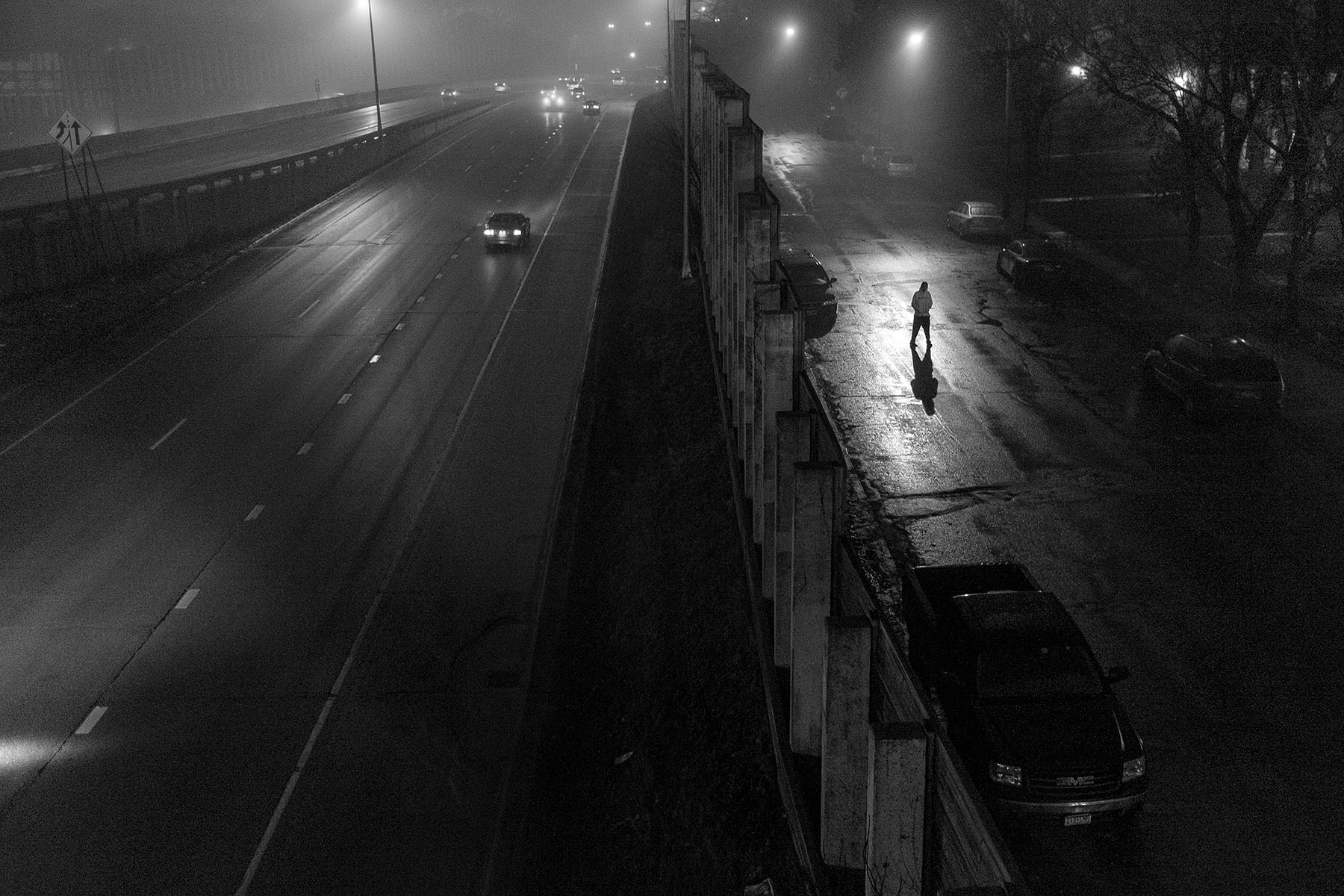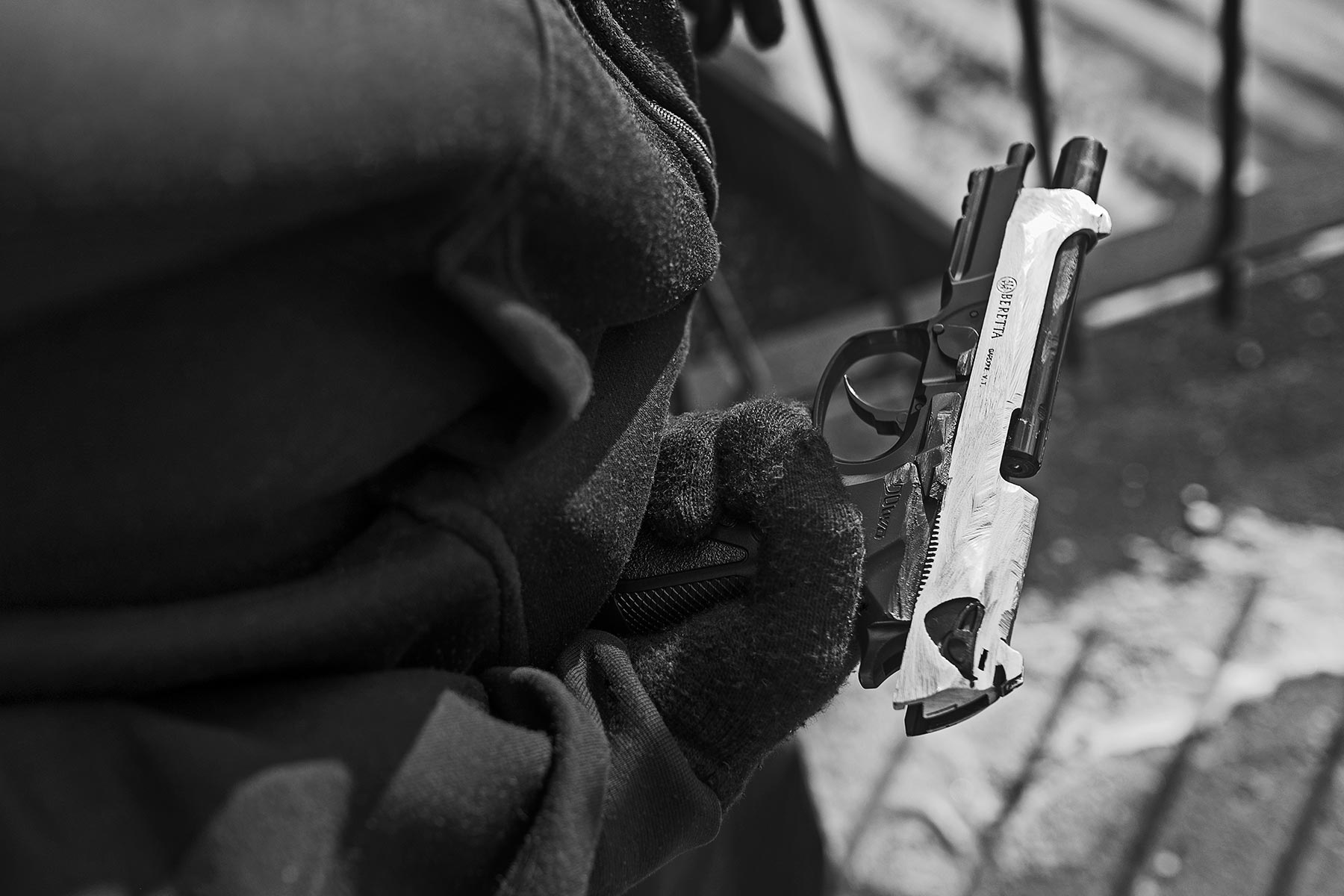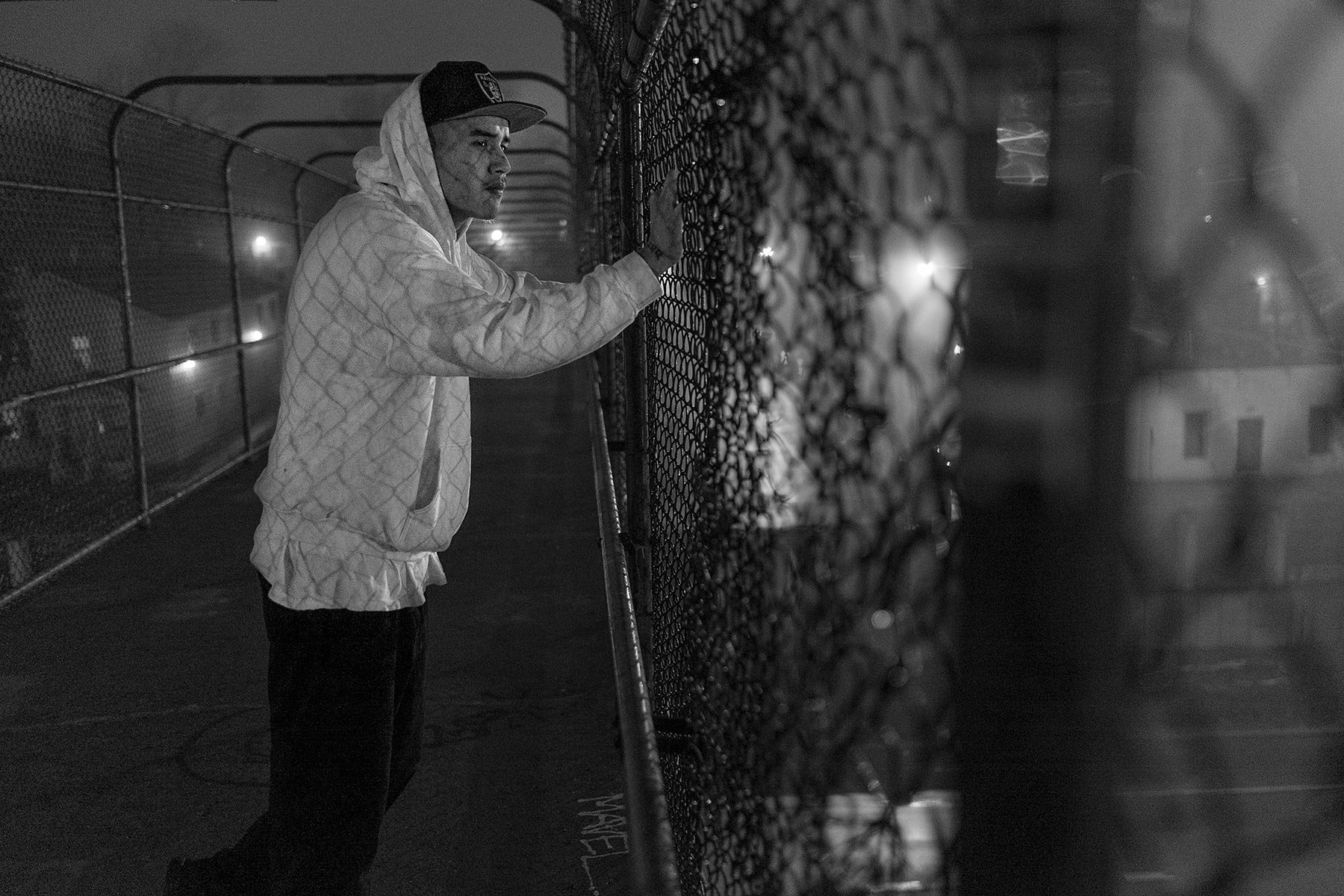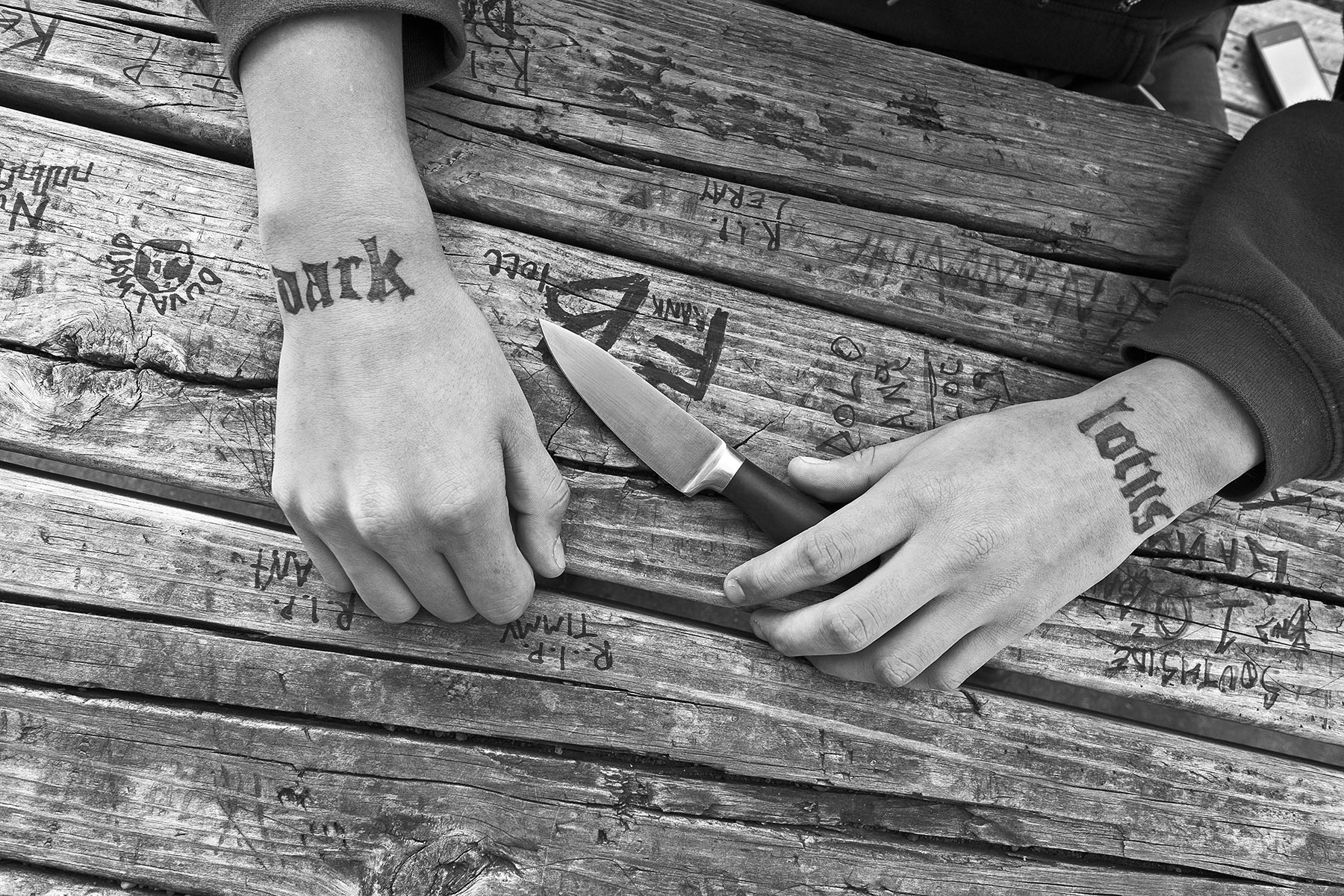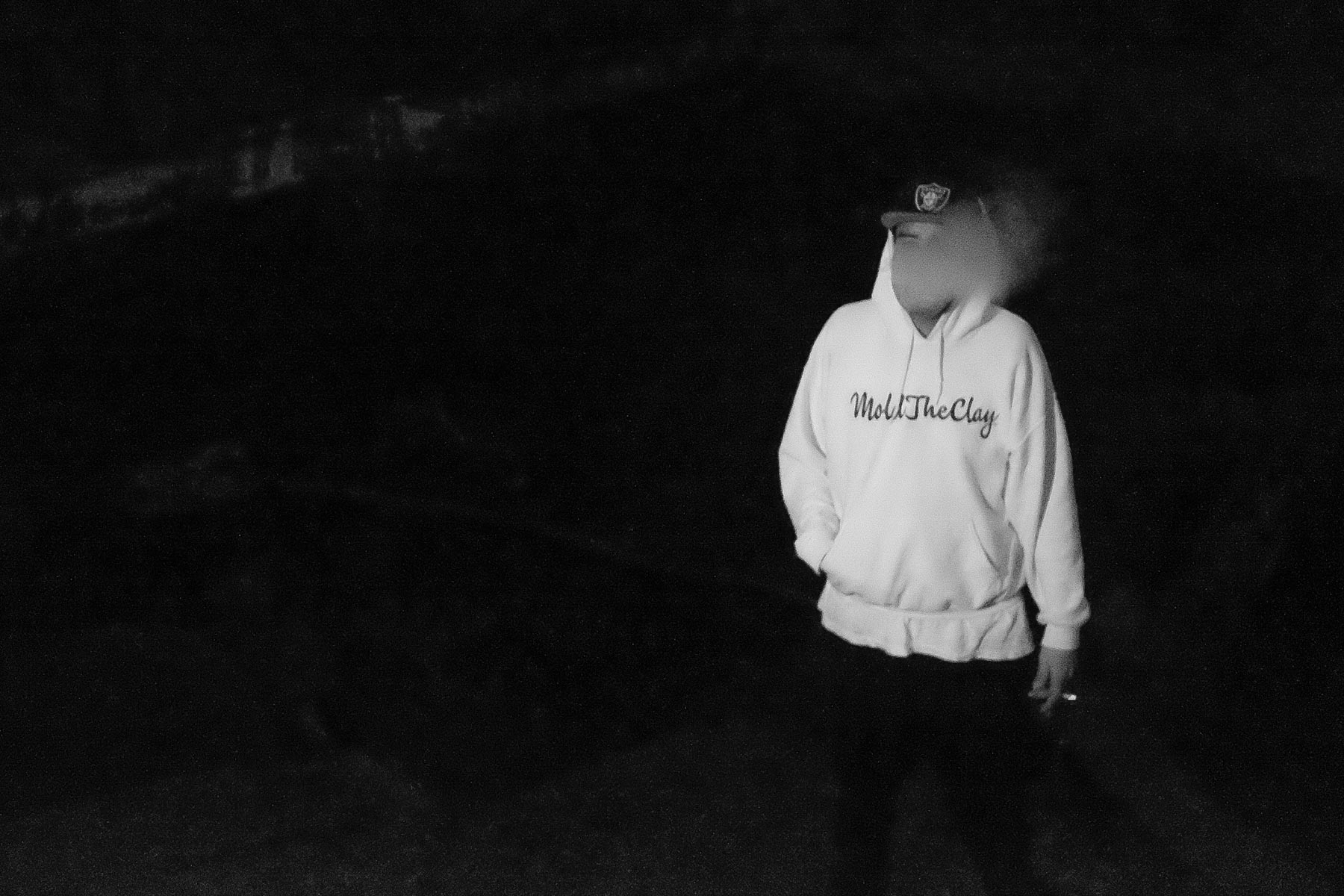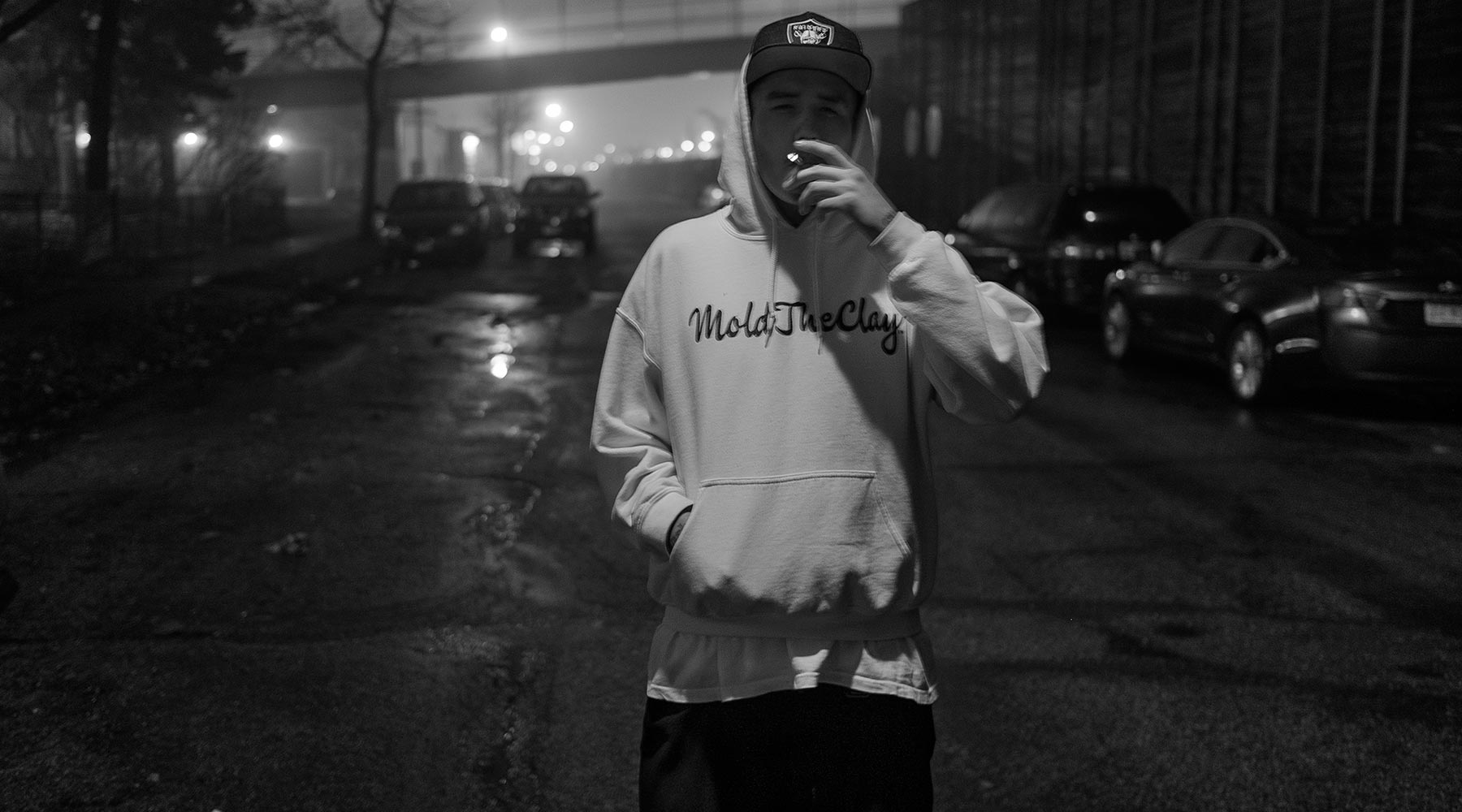
Interview with a marked man
A former member of Native Mob tries to leave gang life
About this project
This is the fourth story in a five-part series on Native American gangs.
By Tristan Ahtone for Al Jazeera America
Photos by Tomo for Al Jazeera America
Edited by Mark Rykoff, Katherine Lanpher
Boots, 19, above, decided to leave gang life after his son was born a few months ago. But it hasn't been easy.
Published on Thursday, January 22, 2015
MINNEAPOLIS — According to Boots, one of the last times someone tried to kill him was when an 8-year-old pulled out a revolver and opened fire.
The boy was a member of the Gangster Disciples, and Boots was a member of Native Mob, a notorious Indian gang based in Minneapolis and known nationally for its ability to function as an organized criminal entity as well as for its propensity for violence.
Luckily for Boots, the boy wasn’t a very good shot.
Since then, Boots has kept his eyes peeled for trouble.
Boots, 19, is one of dozens of Native American gang members who escaped arrest and indictment in 2013 after a massive local, state and federal takedown of Native Mob. With the arrests, the organization has gone underground and, in many places, nonoperational, leaving members like Boots with little to no support to fight off rival gangs or defend themselves from those looking to settle old scores.
Boots, who agreed to go on record if identified by his street name, is in a unique position. With the birth of his son only months ago, he decided to renounce his ties to gang life in order to raise the child. The problem is, his Native Mob former family and old rivals don’t care. A commitment to gang life is a life commitment.
“I can’t be out here. I’m going to run into a pack of people, and I’m going to be by myself,” he said. “Who can I call to come back me up? There ain’t nobody.”
He heard about Native Mob in second grade. Growing up in the East Phillips neighborhood of Minneapolis, Boots, an Ojibwe tribal member, had relatives and friends who were involved in the gang.
“I thought it was cool,” he said. “I seen my cousin selling dope, making money, having guns, all that. It was something I wanted to do.”
By seventh grade, he was a full-fledged member and quickly fell in line. Native Mob maintained strict codes of conduct, had hierarchical structures that had to be respected and enforced rules and regulations through violence.
According to Boots, one of the most common forms of punishment was “getting violated,” in which the offender had his hands tied above his head and was given a choice: get beaten on from head to toe for two minutes or get beaten neck to toe for five minutes. If the person getting beaten fell over or passed out, the clock would start over.
“I always chose neck to toe because I’m not gonna let you sock up this,” said Boots as he grinned and pointed at his face. “You know?”
If members broke the rules on drug use — marijuana and alcohol were acceptable, but pills and other hard drugs were not — they would get violated.
“You can’t shoot at nobody without authorization. We like to use big words like that to make us sound official,” said Boots. “Council was the biggest thing. If you miss council, you get violated. Simple as that.”
He said his gun of choice was a silver .38 snub-nose revolver and he regularly carried knives. He began stalking the streets for easy money.
“I loved robbing people. That’s what I used to love doing,” he said. “I used to rob people all down here on Chicago [Avenue] all night.”
Here’s how it worked: Boots, his brother and one other accomplice would take a pellet gun and the snub nose out with them and wander the night looking for people who looked as if they had cash or other valuables. Usually victims handed over everything when Boots put a gun on them. If they refused, he said, he would fire a round into the ground near their feet.
He robbed stores, couples, food stands, anyone who might have had something he wanted. The money went to marijuana, clothes and food. The rush kept him coming back.
He learned about his opposition. There were other gangs, like the Native Vice Lords, Native Disciples, Bloods and Sureños. As a member of Native Mob, Boots quickly learned that his rivals took gang life very seriously.
“When I was just a little boy, I got grown people walking up to me talking about ‘Fuck Native Mob, I’m gonna whoop your ass,’” he said. “There was nothing fun about it. Shooting at people? There ain’t nothin’ pretty about it.”
This, he said, is how he got his name: After beating a rival gang member unconscious, Boots and an accomplice dragged the boy off the sidewalk to a gutter, then they opened his mouth and made him bite the curb. When the boy woke up, Boots’ friend pulled a gun, and they ordered him not to move. Then Boots stomped the back of the boy’s head, forcing his open mouth onto the curb and spraying blood and teeth across the pavement.
According to Boots, the boy lived.
“It haunts me every day, the things that I did to other people. I wish I could take it back,” he said. “I wish I never robbed people. I wish I never shot somebody.”
He has no plan to atone for his actions, but he does have an escape route: Denver is nearly 900 miles from Minneapolis. It’s there, on the edge of the Rocky Mountains, nestled in the South Platte River Valley, that he dreams of leaving behind his life on the street and becoming a “culinary artist” with a restaurant of his own.
“My [tribe] isn’t rich, but they might help me enough to get a loan to get my own business,” he said. “If the restaurant thing doesn’t work, I’d get a food truck. Right downtown.”
The two things that draw Boots to Denver: the scenery and the marijuana.
“It’s legal,” he said. “Ain’t got to get caught like here for using it.”
Moving may also get him in a good place financially. This summer his son was born, putting new responsibilities on Boots and giving him a new goal: live to the age of 50.
“At least I can be there when he graduates,” said Boots. “Drink my first beer with him. Smoke my first blunt with him. It’s the stuff you get to do with your child. Things that I didn’t get to do with my dad.”
Boots’ mother abandoned him when he was a baby, and his father died at 34. He was bounced from guardian to guardian before renting a room from one of his father’s girlfriends and paying for it with payments he receives from his father's Social Security.
He has a different plan for his son. He wants to give the boy an Ojibwe name, get him to sun dance, have him go to powwows and help him learn his language. According to Boots, the only thing gang life can offer him now is a prison sentence, like the ones his comrades received, and the thought of being away from his son for years at a time doesn’t sit well with him.
But even seeing his boy is complicated and intrinsically tied to the life he so desperately wants to leave behind. The uncle of the mother of his child is a leader of Moe Mob, a relatively new Native gang in East Phillips, and Boots said he’s constantly on the lookout for those other gang members, making visitation difficult.
Then there’s just getting around town.
There are the Native Vice Lords, the Murder Boys and the Native Disciples on the streets. There may be about a dozen Native Mob guys still around who Boots said he could call, but they’re spread across the Twin Cities, so in a pinch, they’re basically useless.
In the dream, Boots saw his deceased father in a beam of light, surrounded by darkness, and his father asked him if he wanted to leave.
“If you have that dream, that means you can leave this world and be with that person,” said Boots. “He asked me if I wanted to leave this world and not be here no more and then I could be with him and be happy.”
He had been waiting for this moment, but faced with the prospect of dying, he suddenly had doubts.
“I always told myself that if my dad ever came and visited me and asked me to leave, I would, because I would be with him,” he said. “But I told him, ‘No, I have things going on. I have a life to live.’”
The two spoke in the darkness. His father asked him how he had been, and Boots talked about his girlfriend and how he wanted to see her again. His father asked again if he wanted to leave, but Boots told him he wasn’t ready.
“He said, ‘All right, son. I love you, and I’ll see you later,’” said Boots. “I woke up that morning crying. Then the U.S. marshals kicked in the door.”
That day, authorities weren’t looking for Boots; they were looking for his brother. When they came for Native Mob, they weren’t looking for him either; they were looking for the group’s leaders.
Whatever guardian angel has stood between Boots and prison may still be there, but he doesn’t want to put it to the test.
Every now and then, he gets a call to attend council with other remaining Native Mob members, but he has yet to be punished for not attending.
“I still got people walking up to me every day talking about ‘Fuck Native Mob this, Native Mob that,’” he said. “I’m just tired of explaining that I don’t bang no more.”
Recently he wrote a letter to a few of his fellow gang members, letting them know he was done with Native Mob, but he’s had no confirmation that he’s been cut loose.
For Boots — despite his dreams for the future, his hopes of being a father and his desire to leave his past life behind — getting out of the gang is one thing. Getting out of gang life is another.
“I don’t believe in heaven, but I damn sure believe in hell,” he said. “When I die, I may go to hell, but I’m trying to make right for what I done in my life. I’m trying to tell my story about how wrong I was.”
An earlier version of this story incorrectly identified Chicago Avenue as Chicago Street.
